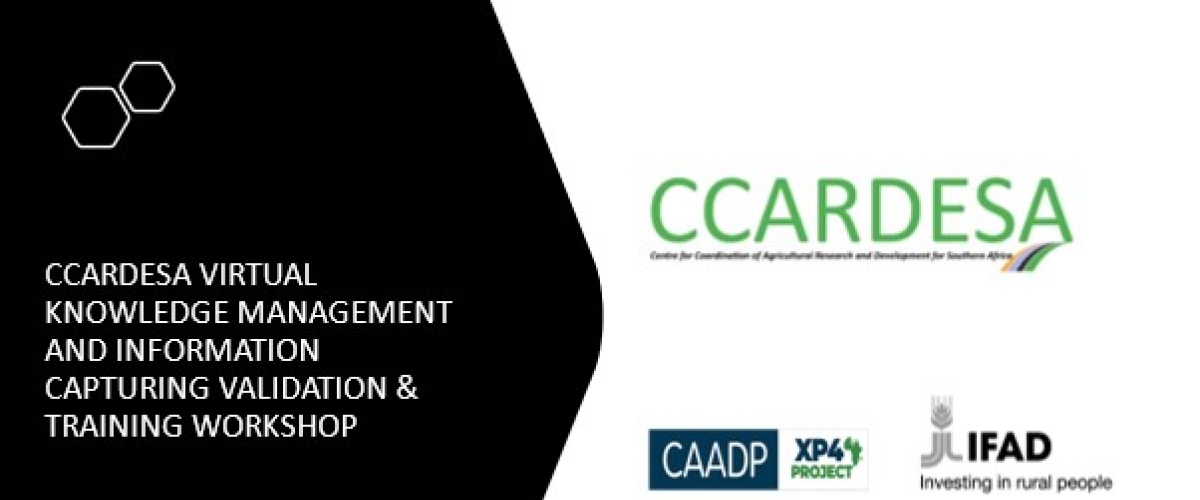
Knowledge is power is a famous adage that is typically used to demonstrate the importance of knowledge. However, for knowledge to be considered robust, there is a need to present it in ways that make it easily accessible to people. Not only should it be easily accessible, but it should also be translated into formats that are easily understood by the target audience. Time and time again, information providers have found it hard to provide certain types of information because some information is not easily accessible. For example, how does one get the knowledge from an out-standing farmer who uses organic production methods but has not written it down in a book or made standard operating procedures for the workers in an organisation to follow in capturing knowledge which can be used as a resource for learning? Tacit knowledge refers to knowledge that resides in the head of people and which they have due to their personal experiences. This kind of knowledge needs someone to capture it and put it in a format that people can easily access.
CCARDESA under the EU supported Comprehensive Africa Agriculture Development Programme ex-Pillar 4 (CAADP-XP4) program which is financed through the International Fund for Agricultural Development (IFAD) held a virtual Knowledge Management & Information Capture Guidelines Validation and Training Workshop on 8th June , 2021. The workshop was aimed at promoting the usage of the CCARDESA developed guidelines that will enable the CCARDESA Information, Communication & Knowledge Management (ICKM) focal point persons to capture various types of knowledge. The guidelines for capturing agricultural knowledge and information are leaning towards issues related to the Malabo Declaration, CCARDESA themes and the agriculture-related Sustainable Development Goals (SDGs). They are meant to facilitate collecting information that will be availed to SADC member states audiences via the CCARDESA website and knowledge hub.
The CCARDESA CAADP-XP4 Program Coordinator, Dr Baitsi Podisi, when giving the opening remarks indicated that one of the roles of CAADP-XP4 Programme was to improve the capacities of CCARDESA to strengthen and support agricultural knowledge and innovation partners at all levels in Southern Africa. This is also geared towards the transformation of agriculture and food systems and to influence policy formulation through effective linkages to the use of climate-relevant science, knowledge and innovation. Hence, the project attaches great importance to issues related to knowledge management .
Dr Podisi explained to the participants that the purpose of the meeting was to: - validate the guidelines by recieving feedback from participants on the developed Knowledge Management and information capturing guidelines and to train them as ICKM focal point persons on the usage of the guidelines.
He highlighted the importance of capturing knowledge and raising public awareness on the issues related to the Malabo commitments, CCARDESA themes and the SDGs because this can assist towards providing relevant information on on-going national and regional efforts towards the attainment of the goals of these important priorities.
The scope of information to be shared is wide and is not limited to the paper-based type of information but includes audio- visual materials such as videos so that the reach is widened to all target audiences. Participants were also encouraged to participate in national meetings where critical issues about SDGs and Malabo commitments are discussed such as the on-going dialogues leading to the UN Food Systems Summit. The participants were urged to share the information that they know and have within their country networks.
Dr Podisi appreciated the effort ICKM Focal point persons for supporting CCARDESA to meet its mandate since 2011. He also acknowledged the work of partners for supporting the knowledge management initiatives at CCARDESA including members of the CAADP-XP4 Consortium. The institutions implementing the CAADP-XP4 Programme include CCARDESA, African Forum for Agricultural Advisory Services (AFAAS), Association for Strengthening Agricultural Research in Eastern and Central Africa (ASARECA), West and Central African Council for Agricultural Research and Development (CORAF) and Forum for Agricultural Research in Africa (FARA). Lastly, he thanked the consultants Dr Stephen Opiyo and Dr Fally Masambuka for their effort in the development of the KM and Information Capture guidelines that will to be used by the member states.
The KM and Information validation and training session was very informative, and the ICKM focal point persons welcomed the guidelines and acquired the competence of using them. They were optimistic that they would help generate the right content to help populate the CCARDESA website and their national information repositories with relevant information.
Mr Bongani Mvubu, the focal point person from the kingdom of Eswatini, indicated that the guidelines were helpful because they would simplify his work. However, he also indicated that one needs to deliberately plan to look out for the information and link it to efforts addressing Malabo commitments, CCARDESA themes and SDGs. Another participant, Ms Rethabile Nchee, the ICKM focal point person for the kingdom of Lesotho, also said that the guidelines were easy to use and would guide her as she undertakes her KM duties.
Participation in this virtual meeting was open to all SADC countries and participants from the Kingdom of Eswatini, the Democratic Republic of Congo, the Kingdom of Lesotho, the Republic of Malawi, the Republic of Mozambique, the Republic of Tanzania, and the republic Zambia and the Republic of Zimbabwe attended the meeting.






